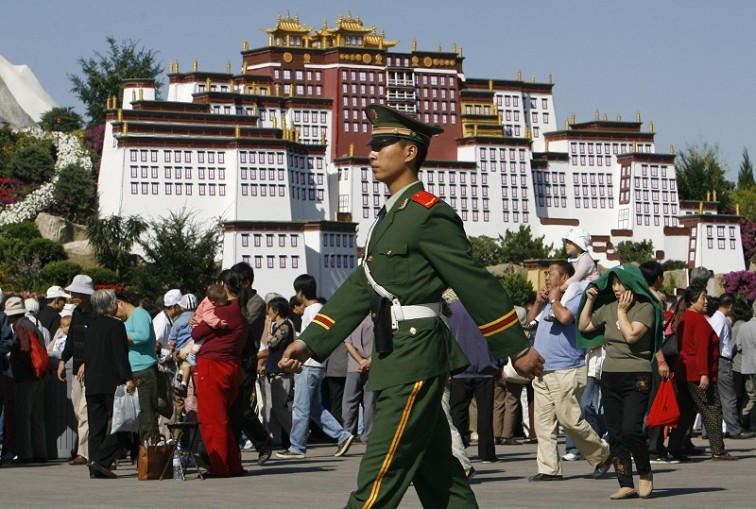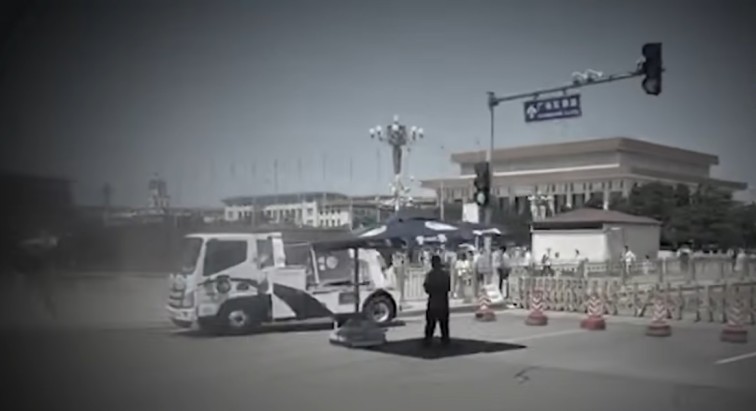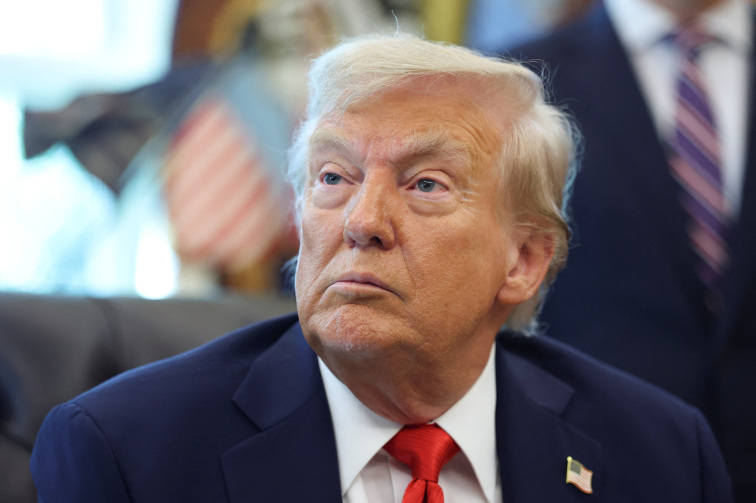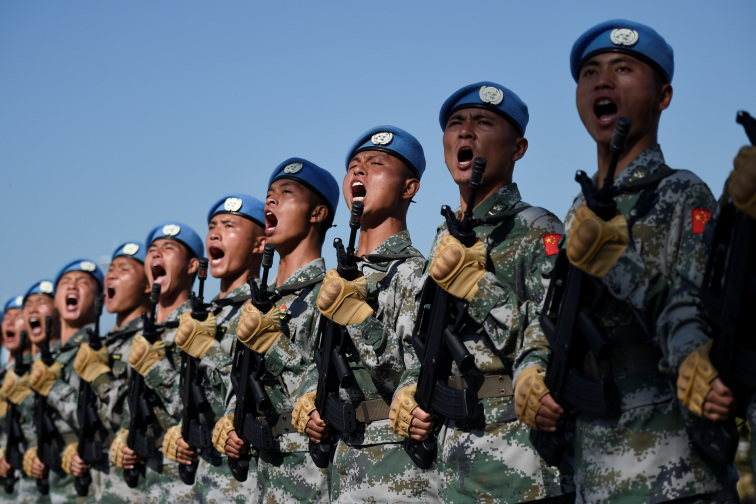Military representatives attending the National People Congress in Beijing (Kevin Frayer/Getty Images)
[People News] Reuters recently published an article “Taiwan and Mainland China Clash Over World War II Narrative”. The report interviewed 99-year-old Taiwanese veteran Pan Cheng-fa, who recalled that it was the Kuomintang (KMT) army that bore the main burden of resisting Japan. Referring to the Chinese Communist Party (CCP), he said: “We gave them (the CCP) weapons and equipment—we strengthened their forces.”
As the CCP prepares to hold a massive military parade to mark the end of World War II, verbal sparring between Taiwan and the CCP has intensified. Japan has also joined the fray. But the real danger lies within the CCP’s internal power struggle, where tensions are razor sharp.
1. War of Words Between the CCP and Taiwan
On August 25, the CCP’s official People’s Daily warned in an online commentary that some people were attempting to “distort or deny the Communist Party’s backbone role in the Anti-Japanese War.”
The CCP claims that the victory belonged to the entire Chinese people, including the Taiwanese, and celebrates the 1945 end of the war, arguing that Taiwan—colonized by Japan since 1895—“returned” to China under the peace treaty.
On August 15, Taiwan President Lai Ching-te wrote on Facebook to mark Victory over Japan Day, saying that “aggression will always fail”, and sharply criticized Beijing’s military threats against Taiwan.
The CCP insists that the People’s Republic of China is the successor state of the Republic of China and that Taiwan is an inseparable part of Beijing’s territory. The Taipei government strongly rejects this, urging citizens not to participate in the CCP’s military parade and warning against reinforcing Beijing’s territorial claims.
2. Japan Urges Countries Not to Attend Parade
On August 24, Japan’s Kyodo News, citing multiple diplomatic sources, reported that the Japanese government had urged European and Asian countries, through diplomatic channels, not to attend the September 3 Beijing parade marking the 80th anniversary of victory in the Anti-Japanese War.
Japan reportedly conveyed through its embassies abroad that Beijing’s commemoration carries anti-Japanese overtones, and that leaders should carefully reconsider participation.
The CCP interprets this as evidence that Japan has never truly reflected on its wartime atrocities, urging vigilance.
3. Putin’s Attendance to Help Xi Jinping Regain Military Control?
Taiwanese commentator Lawrence analyzed that South Korean President Lee Jae-myung’s decision to visit the U.S. and skip the September 3 parade was unexpected. Lawrence believes Washington has the latest intelligence that a coup has taken place within the CCP military, with Zhang Youxia now controlling the armed forces. Xi Jinping wants to regain command, so this parade could turn into a showdown. Putin’s four-day visit to China is seen as preparation to help Xi reclaim military power. Lawrence suggests that Trump even advised Lee Jae-myung not to go to Beijing.
According to information Lawrence cited from Platform X, China and Russia once signed a secret pact: if the Russia-Ukraine war triggered a coup in Russia, the CCP would help Putin regain power; conversely, if a coup occurred in China, Putin would help Xi Jinping restore control.
He further explained recent unusual phenomena in Beijing: large numbers of security personnel appearing in the subway; netizens reporting gunshots near Zhongshan Park; underground tunnels in Beijing possibly hiding armed forces. He speculates these are Zhang Youxia’s measures to prevent Russian troops from infiltrating Beijing to stage a coup.
4. Deep Military Resentment Toward Xi Jinping
In the past month, signs of military discontent have surfaced. At a recent Ministry of Defense banquet, at least nine serving generals were absent: He Hongjun (Executive Deputy Director of the Political Work Department of the Central Military Commission), Wang Chunning (Commander of the Armed Police), Zhang Hongbing (Political Commissar of the Armed Police), Hu Zhongming (Navy Commander), Yuan Huazhi (Navy Political Commissar), Li Qiaoming (Army Commander), Qin Shutang (Army Political Commissar), Xu Deqing (Political Commissar of the Central Theater Command), and Wang Qiang (reportedly Commander of the Central Theater Command).
With the parade imminent, no chief commander has yet been announced. Traditionally, Beijing’s parade commander is the Central Theater Commander. Both Wang Qiang and Xu Deqing skipped the banquet, a sign—using CCP political language—that something may have happened to them.
On August 20, Xi Jinping visited Tibet, but Tibet’s top commander Wang Kai was unexpectedly absent, suggesting he too may soon be purged.
Recently, rumors spread that the parade office has rejected Xi Jinping’s role in inspecting the troops, instead welcoming Zhang Youxia to review them. After repeated purges, resentment toward Xi runs deep throughout the military hierarchy.
Even before the September 3 parade begins, fierce undercurrents of internal strife are rocking the CCP military. Many political observers predict that this year’s Beijing parade could be extraordinarily dangerous—and that something major may happen.











News magazine bootstrap themes!
I like this themes, fast loading and look profesional
Thank you Carlos!
You're welcome!
Please support me with give positive rating!
Yes Sure!